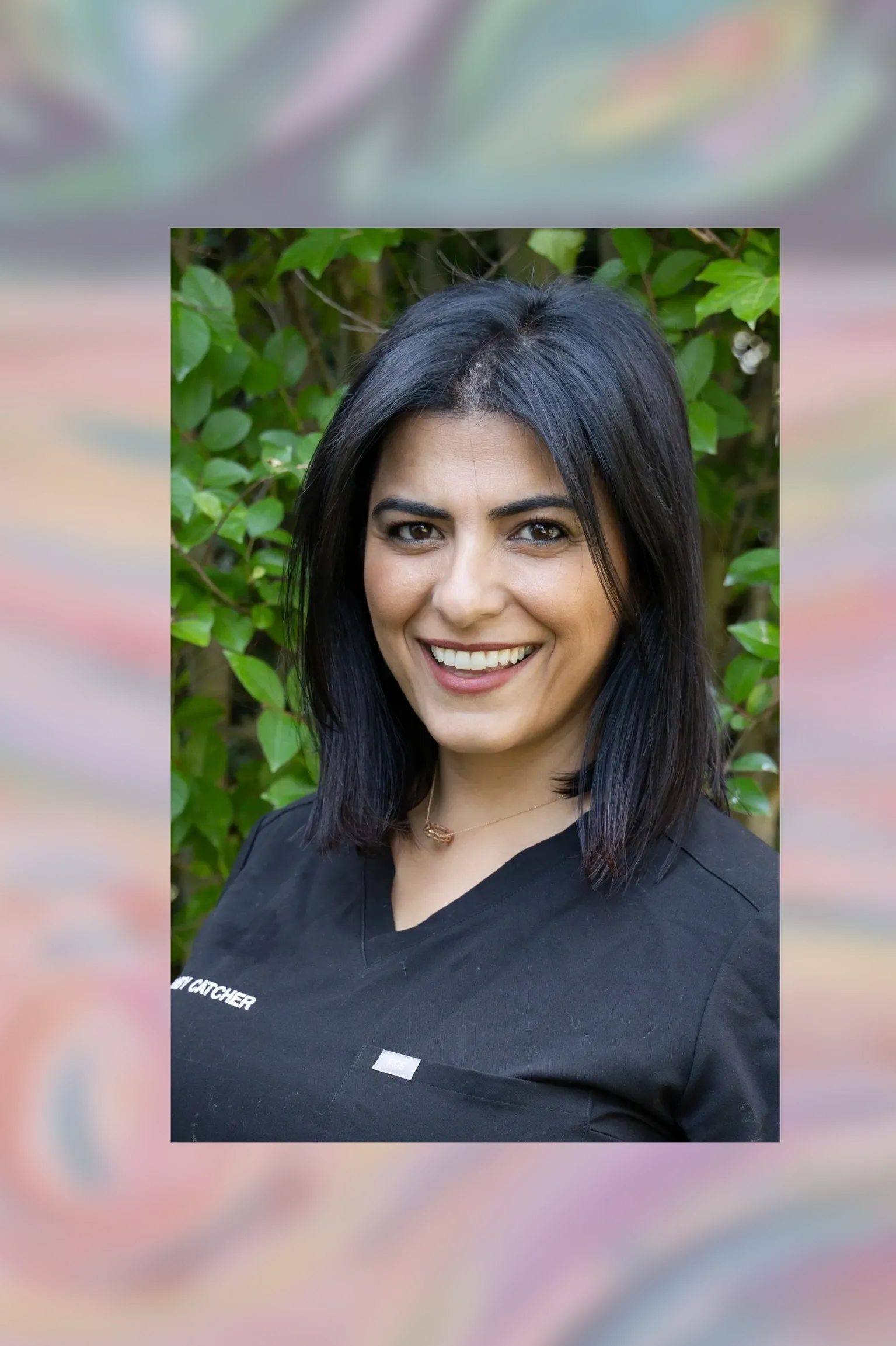Educating, Empowering, & Honoring Your Journey
Atoosa Benji
I was born in Iran and emigrated to the UK when I was in pre-school. After being raised in the UK, my family moved to the United States.
I attained my BS degree from the University of California at Los Angeles and my BSM from the Midwives College of Utah. I am a Licensed Midwife through the Medical Board of California and a Certified Professional Midwife (CPM) through the North America Registry of Midwives.
I have been called to support birth since as far back as I can remember. My grandmother instilled in me a deep love for nature, biology and physiology with birth being her greatest passion of all. Together, we watched birds lay eggs and baby birds hatch. We watched farm animals birth and their babies fight to latch on first to their mother for milk. We marveled at the resilience of mothers and babies and the miracle of birth and rebirth. My grandmother was my rock and before she passed she told me to become a midwife. At the time I hardly knew what a midwife was, but her words united with my calling when I began my work as a birth worker in 2003.
I began my career as a childbirth and lactation educator and birth doula. After 15 years I began training birth doulas and shortly thereafter I went to school to become a midwife and was Licensed by the Medical Board of CA in 2020.
I am married to a supportive and patient partner who understands the unpredictability and rigor of birth work. Together we have children and grandchildren and love to spend our free time spoiling the grand kids the best we can.
In my mother-tongue, Farsi, “Mama” means midwife and Atoosa is my name. So: Mama+Atoosa= Mamatoosa.
Mamatoosa!

Our Mission
Mamatoosa’s mission is to empower birthing individuals by upholding their autonomy and rights throughout their journey. We are dedicated to education and evidence-based research, fostering shared decision-making processes that honor individual choices. Recognizing birth as a social justice and political issue, with deep roots in institutionalized racism and medical biases, we strive to enhance perinatal health through accessible care, equity and seamless referrals to supportive and caring health professionals. We believe in education starting at puberty to nurture an honor, awe, and respect for the body’s innate capabilities. Central to our approach is listening intently to the voices of birthing people, ensuring every experience is supported with empathy and expertise.
Our Commitment
As a white-owned organization devoted to transforming healthcare outcomes and experiences for expectant and new parents, boober has a responsibility to acknowledge and work to dismantle the racist systems which make birthing in the United States more dangerous for Black people. Racial inequities in maternal health are ubiquitous. Black birthing people are dying at three to four times the rate of white birthing people nationally and eight to twelve times the rate of white birthing people in our hometown, NYC, due to systemic and medical racism. Boober commits to continuous engagement in what we, as white people and founders, can do as individuals and as an organization to dismantle these systems and harms, as well as examining the actions we take that perpetuate these systems. We recognize that birth work is inherently political and we pledge to continually work to ensure that birth justice and equity become realities. To this end, we have lower platform fees for BIPOC birthworkers, provide scholarships and pay-what-you-can spaces for our doula and lactation trainings and mentorship program.
Boober commits to continuous engagement in what we, as white people and founders, can do as individuals and as an organization to dismantle these systems and harms, as well as examining the actions we take that perpetuate these systems. We recognize that birth work is inherently political and we pledge to continually work to ensure that birth justice and equity become realities.
The Boober for Birth Justice Fund (BBJF) pays for services and projects that directly benefit Black, Indigenous, and other people of color who are pregnant or newly postpartum, who are pursuing careers in or advancing their education in birth work, and/or who are already engaged in birth justice activism.
